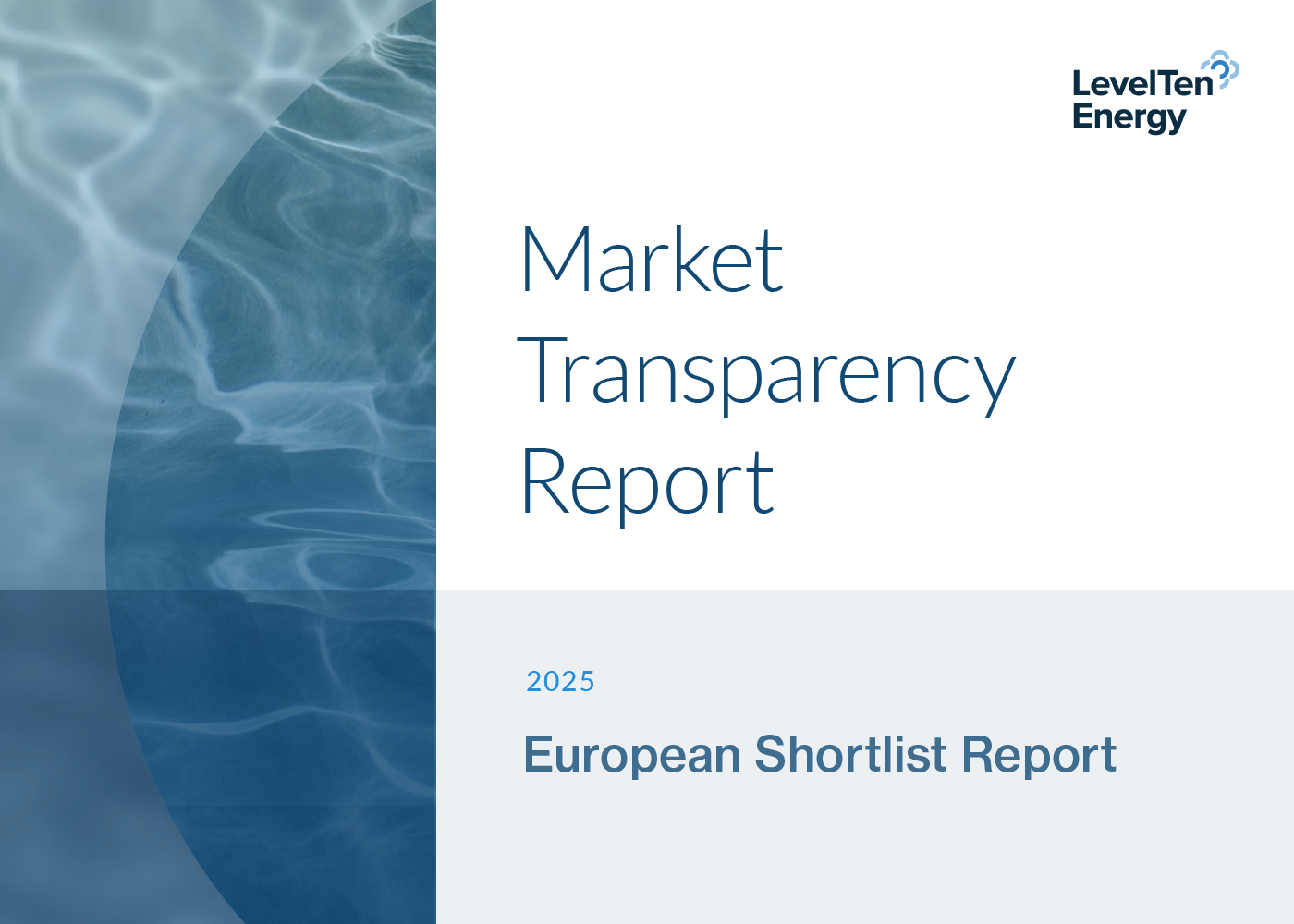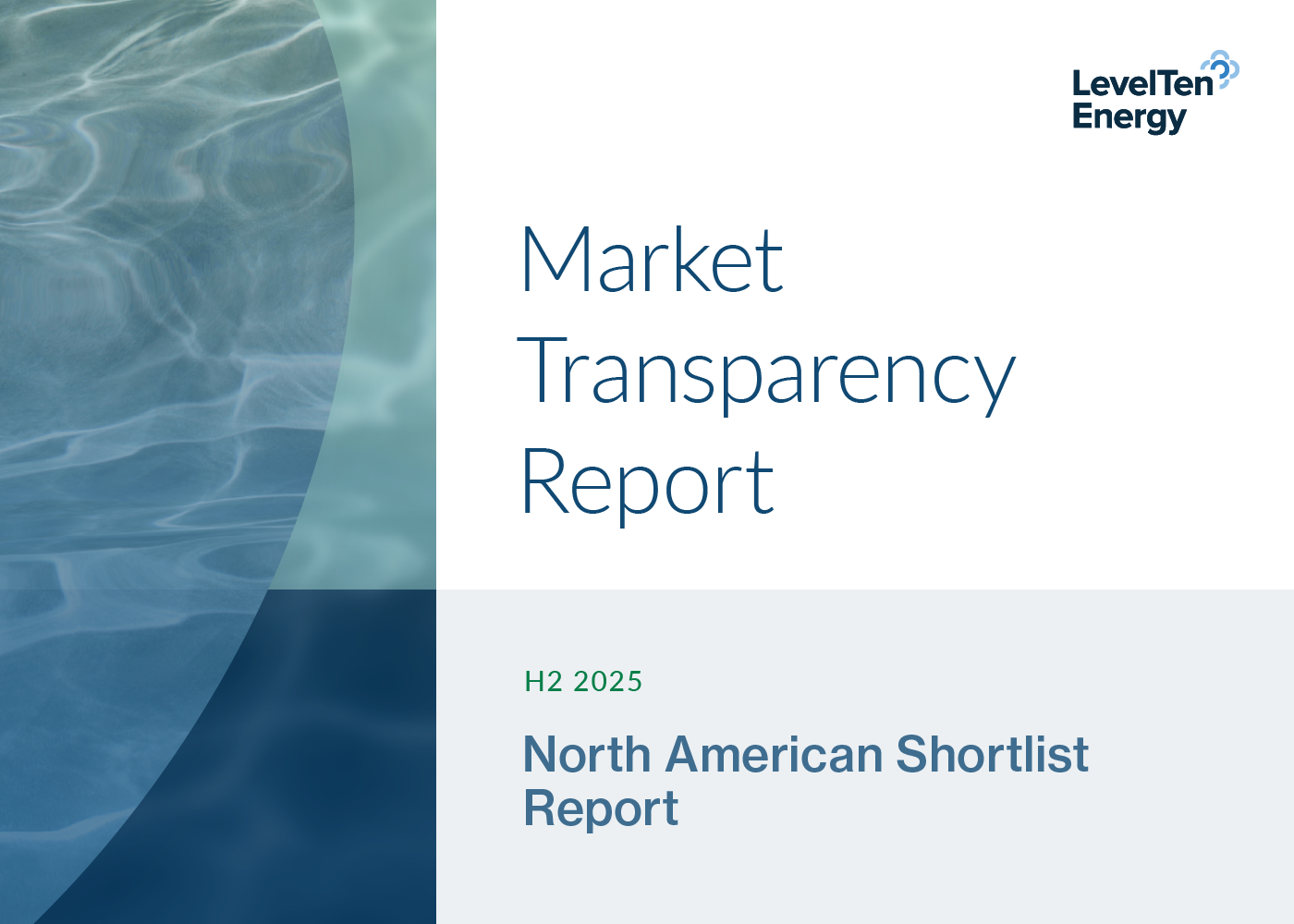If there's one ray of light in these dark days, it's this: According to Goldman Sachs, the Coronavirus crisis will likely lead to the largest ever decline of global carbon emissions on record. With factories closed down and no one flying or commuting to work, carbon dioxide emissions are expected to decline by 5.4%, from 33 gigatons in 2019 to around 31 gigatons this year. But as we all know, this has come at a high cost, tanking the economy and affecting the livelihoods of millions of people around the world.
Our collective challenge is to maintain a decline in emissions, while improving our quality of life. To see what that would take, LevelTen Energy looked at how many new renewable energy projects would need to come online (approximately) to maintain 2020's estimated level of emissions.
What It Would Take to Maintain 2020 Emission Levels
To get an estimate, we first looked at the impact a project could have on emissions. On the LevelTen Marketplace, we calculate the pounds of carbon dioxide-equivalent (CO2e) emissions that every renewable energy project is expected to displace, using the EPA's AVERT model. The average displacement of all North American projects on the LevelTen Marketplace is 1,397 pounds per megawatt hour (MWh). This displacement factor would vary worldwide, but to keep things simple, we'll use it as an example.
Then we looked at how many megawatt hours (on average) a project could generate each year. Fortunately, we also calculate this on the LevelTen Marketplace: The average expected generation of all projects is 267,000 MWh per year.
Doing some simple conversions, we estimate that it would take 11,821 new renewable energy projects to displace 2 gigatons of emissions - the amount Goldman Sachs expects to drop this year.

To put that into perspective, we can look at how much renewable energy capacity we added worldwide last year. According to the International Renewable Energy Agency, the renewable energy sector added 176 gigawatts of generating capacity globally in 2019. The average capacity of all projects on the LevelTen Marketplace is 100 MW (phew - a nice even number!) - which means that if we brought 11,821 projects online, we'd add approximately 1,182 gigawatts of capacity. So if we develop at 7x the rate (and invest in a lot of utility scale batteries), we could make this happen. Better get those PPAs signed and shovels ready.
Of course, we wouldn't have to build as much if we reduce emissions in other ways, and we might. In addition to showing us how clear our skies can be with fewer emissions, the COVID-19 crisis has shown us what's possible when people travel less and work from home. As reported by Yahoo Finance, Andrew Wilson, EMEA chief executive of Goldman Sachs Asset Management, said that "companies could permanently reduce business travel and move to more working from home even after the lockdown subsides."
Corporations Remain Committed to Renewable Energy
The good news is that corporations are still committed to the cause. We are hearted to see that LevelTen's clients remain committed to fighting global warming by entering into power purchase agreements (PPAs) that will bring new clean energy projects onto the grid. Since these are long-term contracts, this short-term volatility isn't having a major impact on the value of PPAs: They are still a financially responsible way to meet sustainability commitments. Another bright spot: Any PPAs signed this year will result in construction on new projects next year, when we're back at work - and need the jobs to get our economy back on track.
Investors Remain Committed to Renewable Energy
The other (hopeful) news is that investors still see sustainable business practices as vital for good financial returns. The Financial Times reports that "Eight investment groups, including BNP Paribas Asset Management, DWS and Comgest Asset Management, told [the FT] that tackling global warming must continue to be a priority for public companies, despite unprecedented pressure on businesses globally after government measures to tackle the pandemic left whole sectors unable to operate. The investors said businesses would be given leeway when it came to climate change this year, but warned against backtracking on targets to reduce carbon emissions."
On top of that, the crisis has made investing in fossil fuels less desirable. The stay at home orders have decimated demand for traditional fuels, with oil prices plunging to a 21-year low. The International Renewable Energy Agency (IRENA) said "the volatility of the oil price will discourage new investment in unconventional oil and gas, and that will compromise their ability to develop… Investors will look for investments that provide more resilience in the economy, so we think this will make the renewables more convenient than they were demonstrating in the last year. We are sure one of the first sectors that will start to run and provide GDP and jobs is the renewables sector."
And there may be fewer fossil fuel generators to invest in. Our recent report found that demand for energy is flattening as energy use is spread out more over the day. This means that energy generators that rely on peak prices (fossil fuels) will be impacted more than renewable energy projects, greatly reducing their revenue.
We've Been Shown What Reducing Emissions Means
Around the world, millions of children are seeing the stars and breathing clean air for the first time. With investments in renewable energy now, we can ensure that they continue to do so. Any corporation that is interested in bringing new clean energy to the grid through a power purchase agreement should get in touch.






